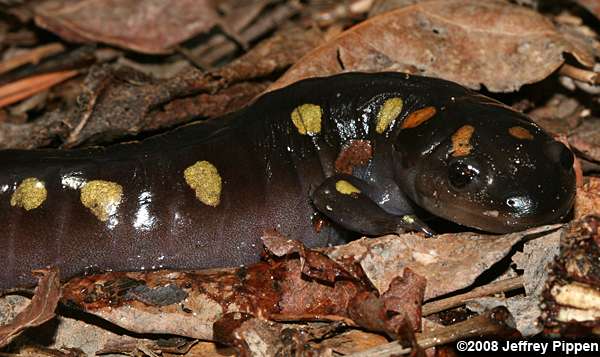
Individual #3072
Durham Co., NC16 Mar 2008
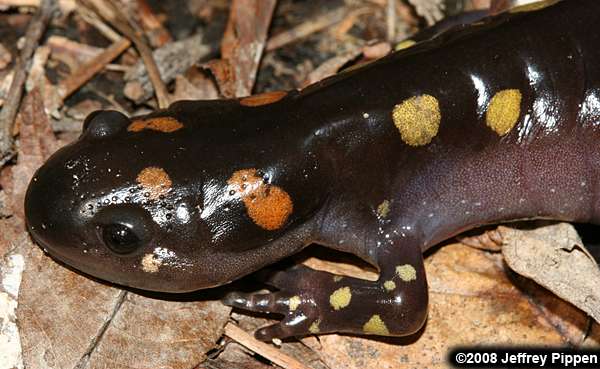
Individual #3072
Durham Co., NC16 Mar 2008
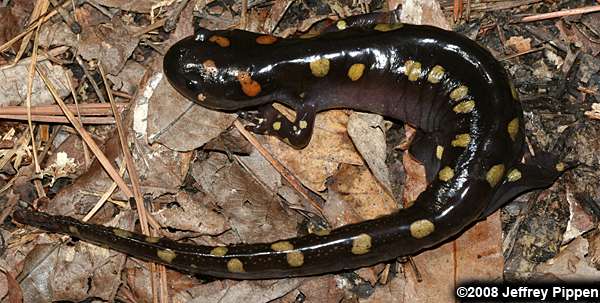
Individual #3072
Durham Co., NC16 Mar 2008
Statewide in NC and fairly common, but not commonly seen due to their underground lifestyle, Spotted Salamanders breed in temporary pools in deciduous forests in the late winter. There are several different individuals below, look closely and note that each one has a different spot pattern, especially with respect to the amount of orange head spotting.
 |
Individual #3072 Durham Co., NC16 Mar 2008 |
 |
Individual #3072 Durham Co., NC16 Mar 2008 |
 |
Individual #3072 Durham Co., NC16 Mar 2008 |
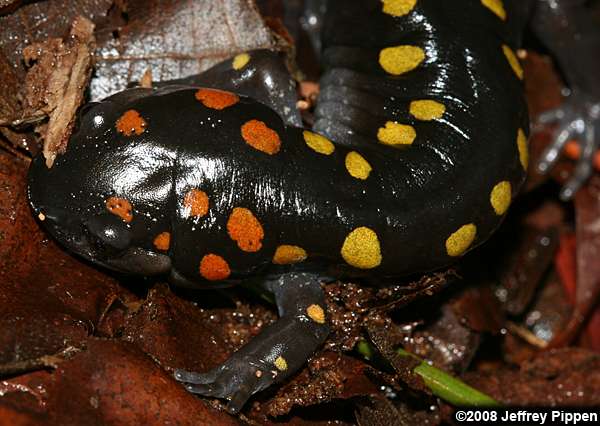 |
Individual #3048 Durham Co., NC15 Mar 2008 |
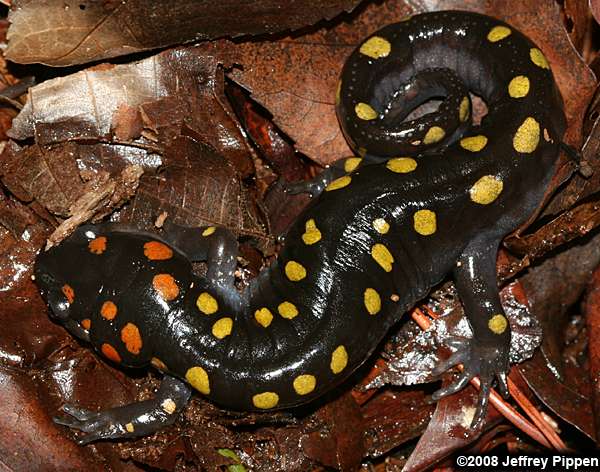 |
Individual #3048 Durham Co., NC15 Mar 2008 |
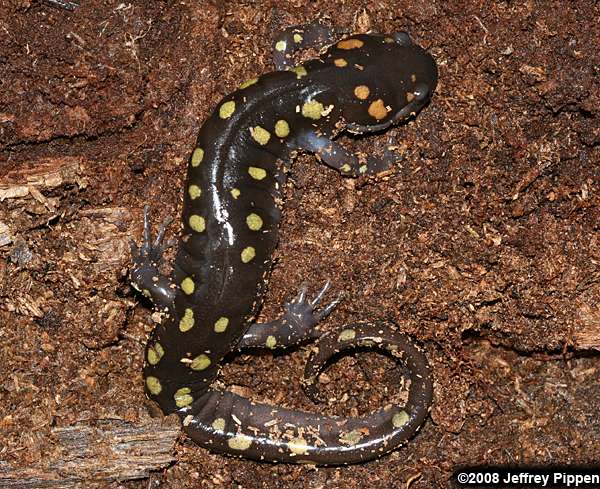 |
Individual #3053 Durham Co., NC15 Mar 2008 |
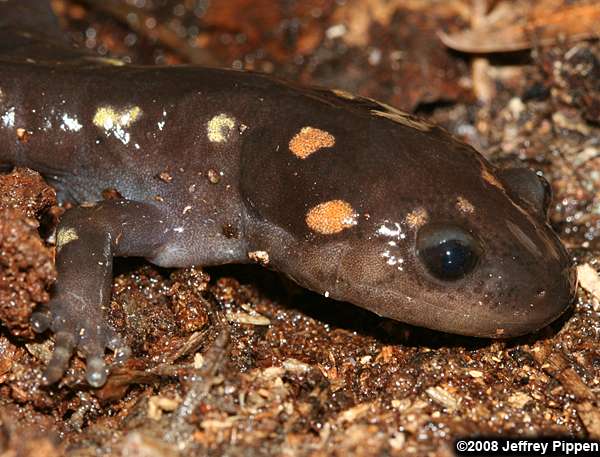 |
Individual #3029 Durham Co., NC15 Mar 2008 |
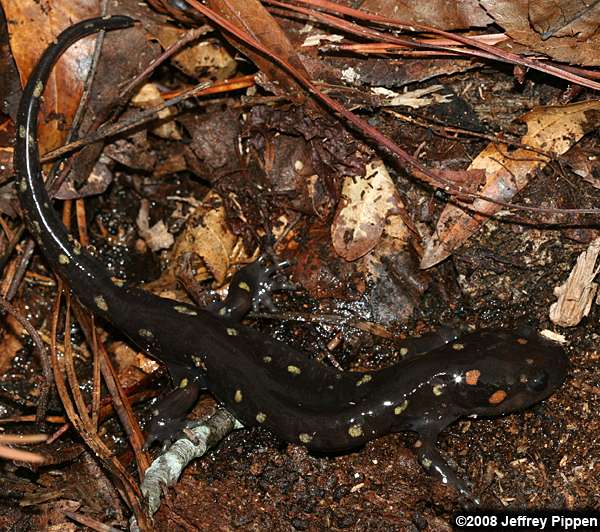 |
Individual #3029 Durham Co., NC15 Mar 2008 |
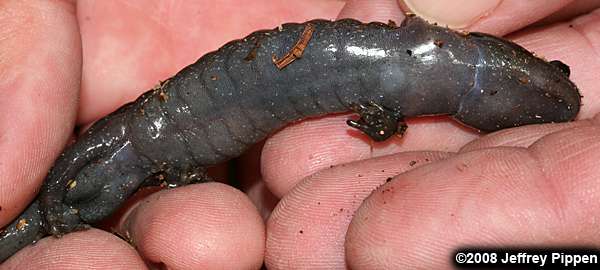 |
Individual #3029 Durham Co., NC15 Mar 2008 Undersides are unspotted dingy gray. This is a male as noted during the breeding season by the two swollen glands at the underside of the base of the tail just past the hind legs. |
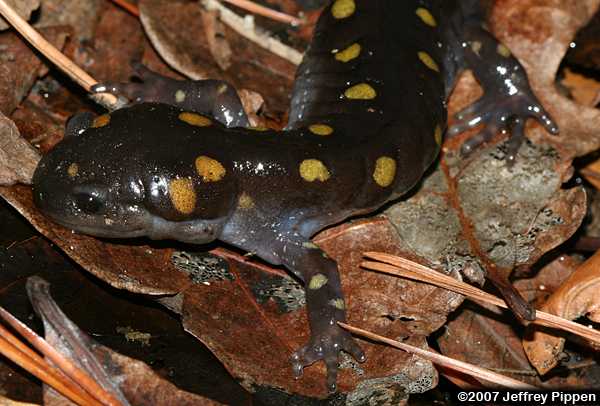 |
Individual #6085 Durham Co., NC11 Feb 2007 |
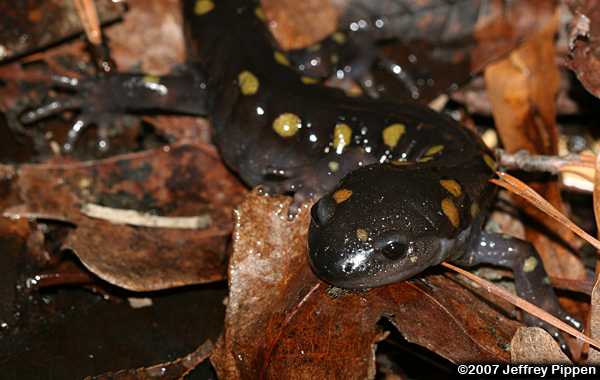 |
Individual #6085 Durham, NC11 Feb 2007 |
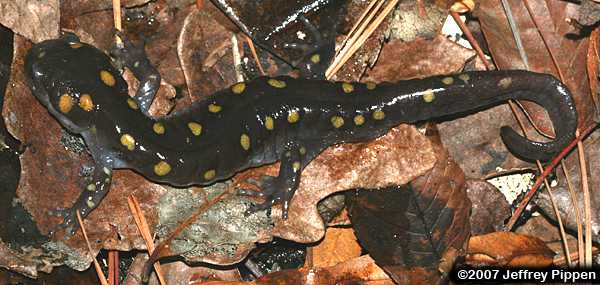 |
Individual #6085 Durham Co., NC11 Feb 2007 |
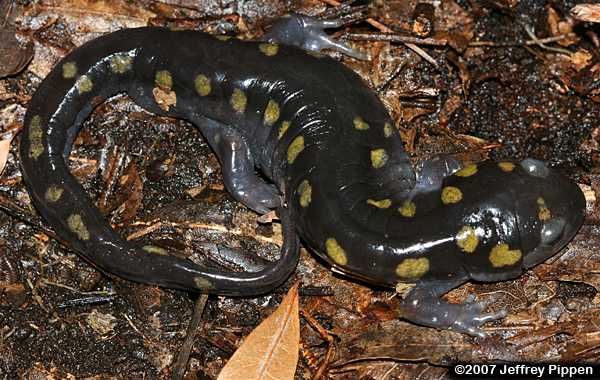 |
Individual #6092 Durham Co., NC11 Feb 2007 |
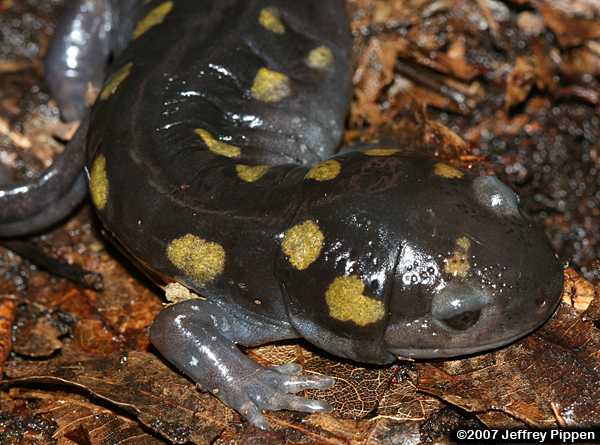 |
Individual #6092 Durham Co., NC11 Feb 2007 |
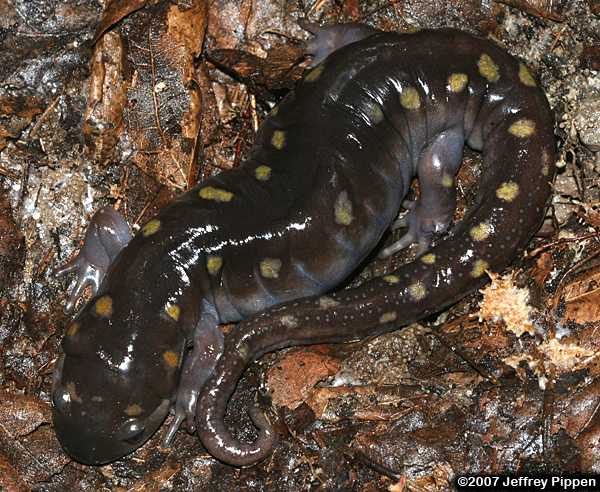 |
Individual #6096 This one's got a lot of little light dots along the tail. Durham Co., NC11 Feb 2007 |
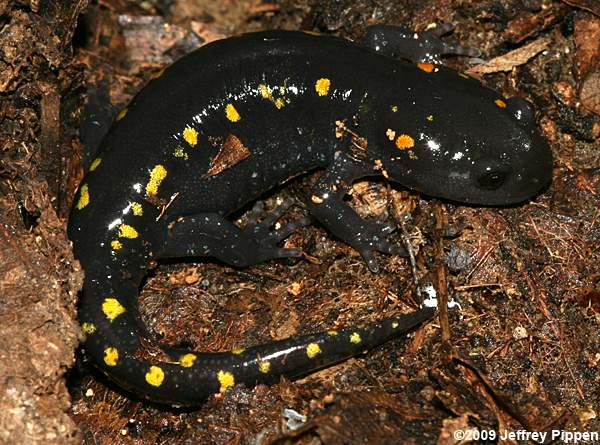 |
Individual #8106 Orange Co., NC29 Mar 2009 |
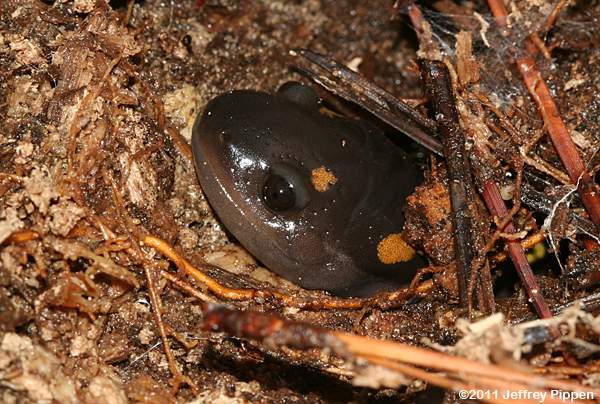 |
Individual #2264 Orange Co., NC2 Apr 2011 Peek-a-boo |
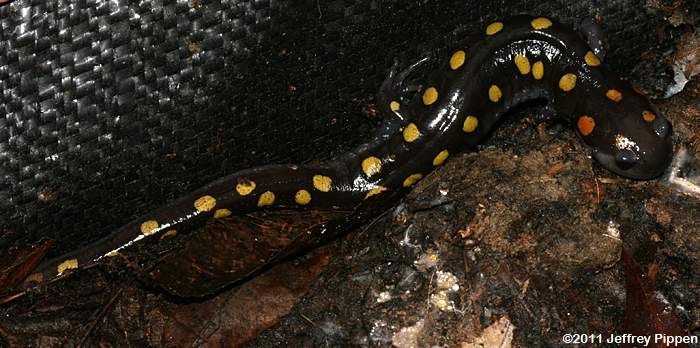 |
Individual #2257 Durham Co., NC 20 Mar 2011 |
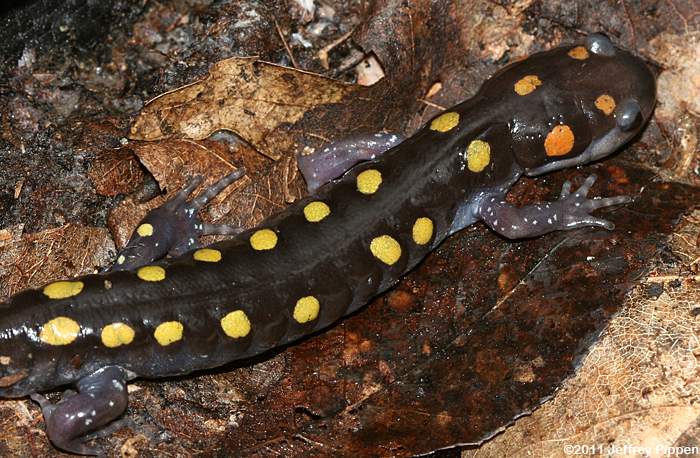 |
Individual #2257 Durham Co., NC 20 Mar 2011 |
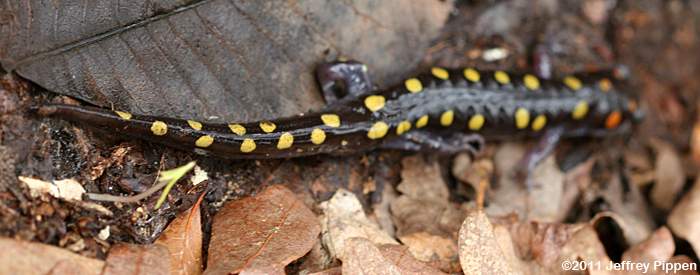 |
Individual #2257 Durham Co., NC 20 Mar 2011 See ya! |
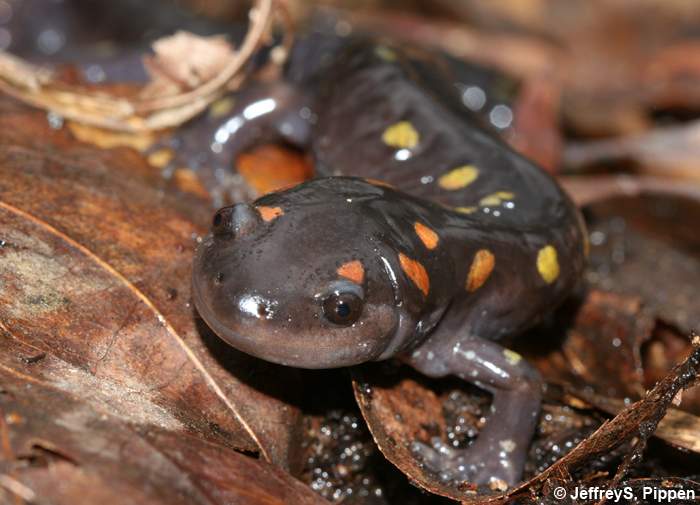 |
Individual #0950s Durham Co., NC 1 Mar 2013 |
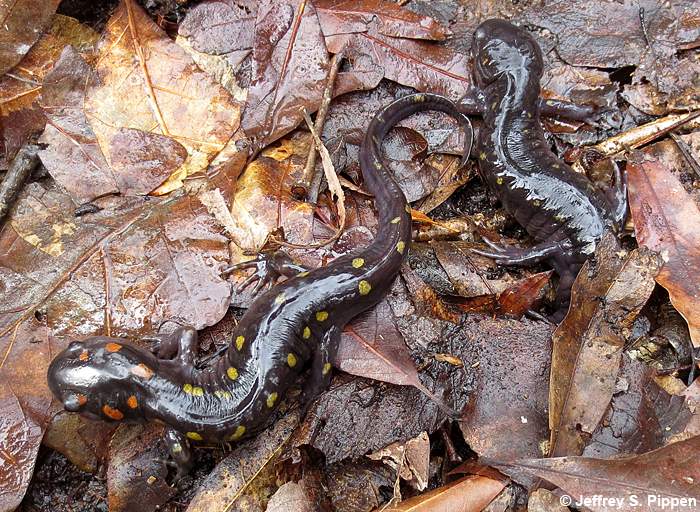 |
Individual #0950s Durham Co., NC 1 Mar 2013 |
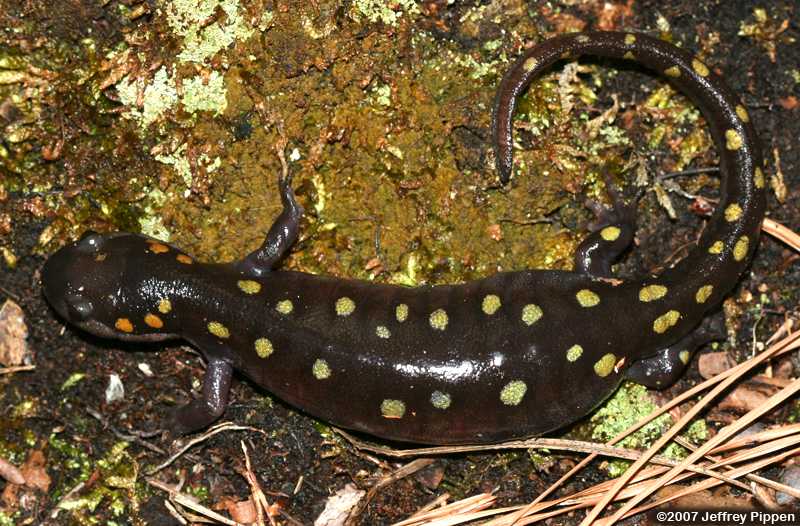 |
Individual #6172 Durham Co., NC4 Mar 2007 |
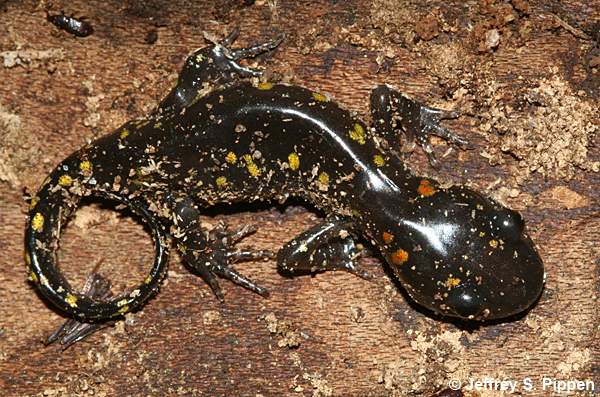 |
Spotted Salamander (Ambystoma maculatum) Buncombe Co., NC 8 Sep 2012 This was an incredibly small adult, barely 3 inches long. |
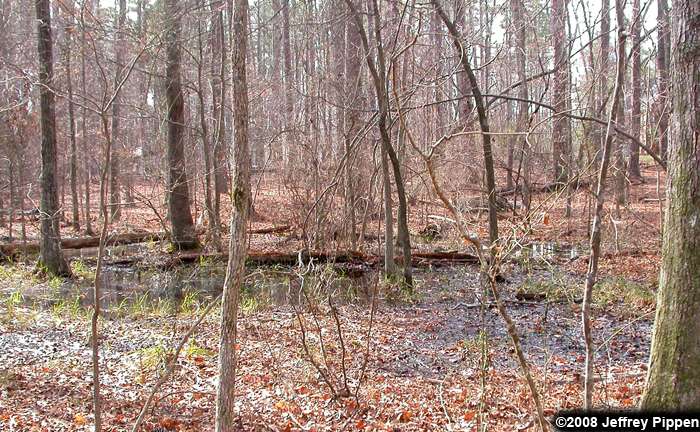 |
Upland forest depression pools that fill during winter rains but are dry during the summer are the typical breeding habitat for Spotted Salamanders. Durham Co., NC15 Mar 2008 |
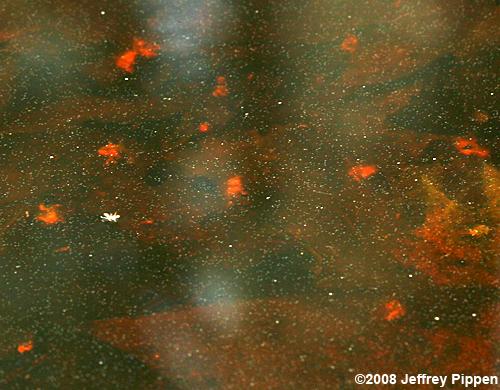 |
The breeding season for Spotted Salamanders in the the late winter in North Carolina. After courtship between males and females, the male salamanders attach spermatophore packages to twigs and leaves underwater. These spermatophores appear as pale yellow-orange blobs. Interested females then pick up the spermatophores and use them to fertilize their eggs. Durham Co., NC15 Mar 2008 |
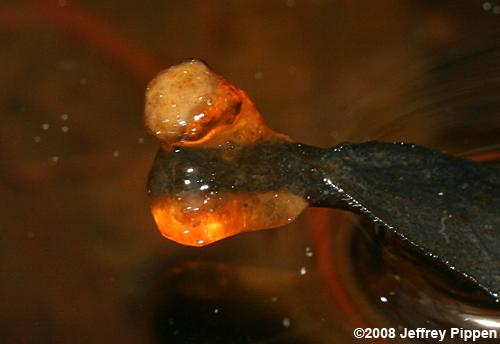 |
Close up a spermatophore. Durham Co., NC15 Mar 2008 |
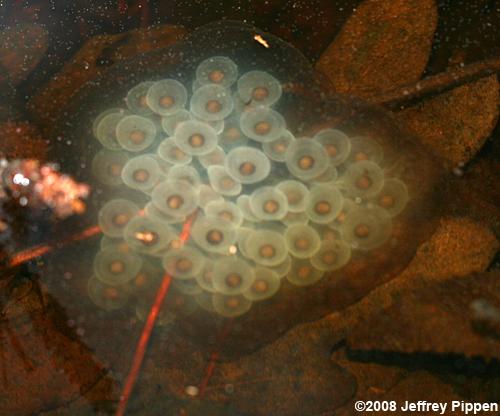 |
Eggs are then laid in clusters and attached to leaves and twigs under water. Durham Co., NC15 Mar 2008 |
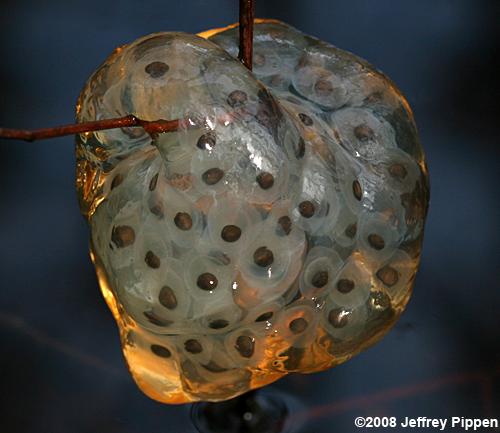 |
Close up of Spotted Salamander egg cluster with developing baby salamanders. Durham Co., NC15 Mar 2008 |
Created on ... Feb 11, 2007 | jeffpippen9@gmail.com